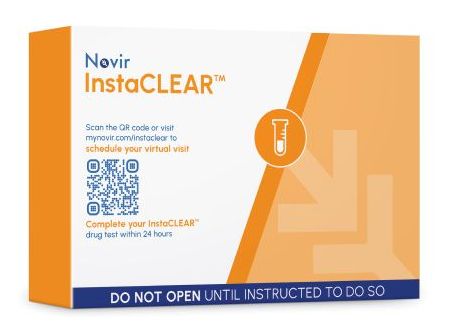Collection Site Refusals Are Serious – Employers Can Prevent Them
“This whole thing could have been avoided if they informed drivers, but this driver has had a CDL since 2014, so I still believe he got p***ed off and marched out.”
– from an email from a colleague.
This situation is a Refusal To Test. Under DOT regulations, a Refusal To Test counts as a violation, just like failing a drug or alcohol test.
Read more about the consequences of refusing a test.
This incident could have been prevented if the employer had fulfilled their responsibility.
What happens if you fail a DOT drug or alcohol test?
It’s bad.
Return-To-Duty Process
Briefly, the Return To Duty process:
- A DOT-regulated employee must IMMEDIATELY stop performing safety-sensitive work.
- S/he is required to visit a SAP and must successfully complete a treatment program.
- After that, s/he must complete a Return To Duty drug (and sometimes alcohol) test.
- Follow Up Testing can last as long as 5 years.
- AND the whole thing gets reported to the FMCSA Clearinghouse.
Most Refusals are what they appear to be: an employee declining to be tested.
Some, however, can be due to a misunderstanding. Still, in the eyes of the DOT, a Refusal is a Refusal.
Collection sites are not the only place a refusal can occur.
Collection sites are not the only place refusals happen
One common refusal occurs when a donor leaves the collection site before completing the test. Many donors walk out after providing a urine sample that is too hot or too cold, which often indicates smuggling. When directed to provide a second specimen under direct observation, many refuse and leave. That’s a refusal.
Another refusal occurs when donors fail to provide enough urine for the test. They get up to three hours and 40 ounces of water but must stay at the testing site until they produce a sample. Many frustrated donors leave before providing a sample, which counts as a Refusal To Test—just like in the example above.
Trained collectors often explain these rules to donors, but they don’t have to.
So how is the donor to know this is the rule? If it’s not the collector’s responsibility to tell them, then whose is it?
If you are the employer, it is your responsibility.
Under DOT regulations, employers are required to provide Employee Education. The DOT even provides the document employers are to provide.
On-Page 7:
If you are unable to provide 45 mL of urine on the first attempt, the time will be noted, and you will be:
- Required to remain in the testing area under the supervision of the collection site personnel, their supervisor, or a representative from your company,
- Leaving the testing area without authorization may be considered a refusal to test
Are you providing Employee Education materials to all regulated employees?
At InOut Labs, all new DOT-regulated clients are provided the tools they need to stay compliant with DOT drug and alcohol testing requirements, including this document and a receipt to document you have provided it.
Wanna join us? www.inoutlabs.com/consortium


